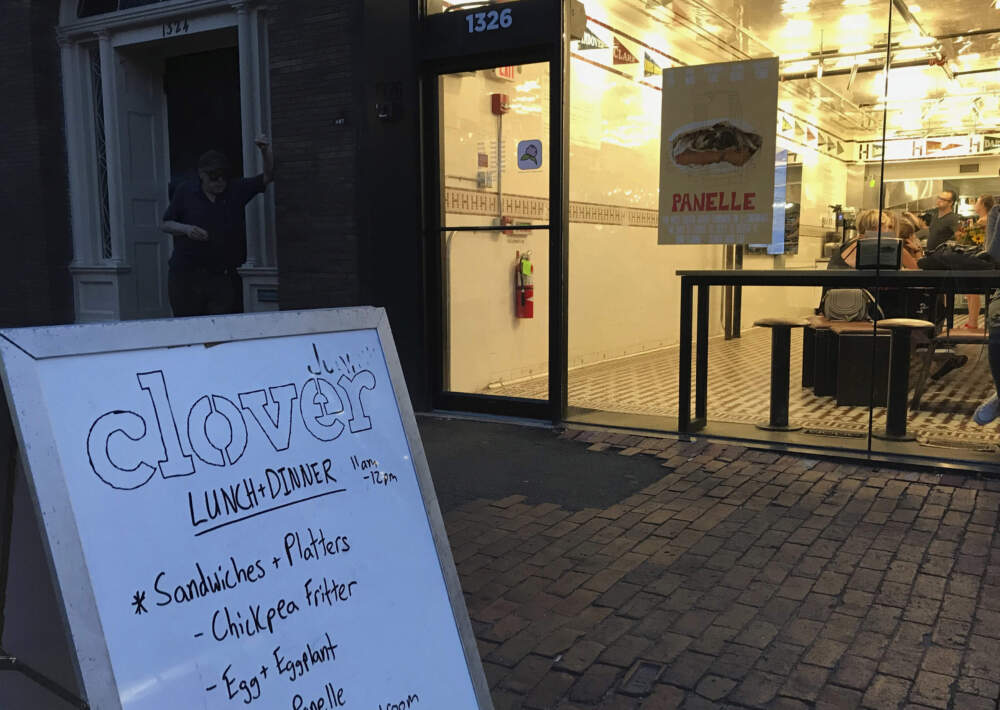Advertisement
Boston eatery chain Clover Food Lab files for bankruptcy

Boston-based vegetarian fast food chain Clover Food Lab filed for Chapter 11 bankruptcy protection Friday, according to court records.
The company's filing in federal bankruptcy court in Delaware cited low sales, high rent and lack of funding as reasons. According to the filing, Clover Fast Food, Inc. is seeking relief under Chapter 11, so it can stabilize and restructure its business, which has not had the post-pandemic resurgence the company hoped for.
"COVID changed everything for restaurants. The way people eat, drink, work, and get together has shifted substantially," the company told WBUR in a written statement about the bankruptcy, adding "while we’ve seen a steady recovery in sales, they are still below pre-pandemic levels."
Clover started as a food truck in 2008 and over the years expanded to brick-and-mortar restaurants. The popular vegetable-focused eatery is known for sourcing much of its ingredients locally. Clover currently operates 12 restaurants, two kiosks within Whole Foods markets, a catering business and meal box production and delivery service.
During the pandemic, the company pivoted to selling meal boxes to customers, and did get relief from government programs, Clover CEO Julia Wrin Piper wrote in the filing.
"However, as we approach the end of 2023, restaurant traffic remains lower than pre-pandemic levels at brick-and-mortar locations, and all rental abatements and government assistance have ceased," wrote Wrin Piper, who was recently named CEO.
The company had plans earlier this year to expand around New England and into New York, and expected to raise capital for those efforts. But those plans coincided with the failure of Silicon Valley Bank and ensuing fallout, and Clover's funding efforts were unsuccessful, according to the filing.
The company also faced challenges with the leases for three of its restaurants, which have high rents and low sales. According to the filing, the company tried to work with its landlords to find solutions.
"Regrettably, these negotiations did not progress rapidly enough to create long-term viability, which has led Clover to pursue relief as a small business debtor under Subchapter V of Chapter 11 of the Bankruptcy Code," Wrin Piper wrote in the filing.
Clover closed its Back Bay restaurant in August, which was losing $350,000 a year, after a legal challenge from its landlord there. At the time, the company said it tried to find a solution with its landlord, but that went nowhere.
According to its bankruptcy filing, Clover seeks to stabilize its business by restructuring its operations and finances. In the filing, the company said it will terminate the leases on its locations that are underperforming and have above-market rent, sell some of its delivery vehicles and restructure to focus on its most profitable business lines.
"Clover is laser-focused on maintaining the high standard we’ve always set for our food," the company's statement said. "Customers’ continued support for Clover—eating in our restaurants, ordering a home-delivered meal box—also benefits our expansive network of local farmers and food producers, many of whom rely on Clover’s business."
